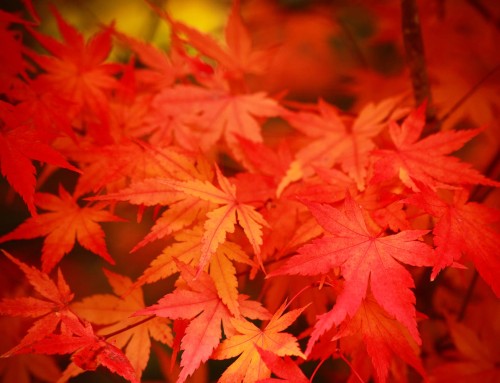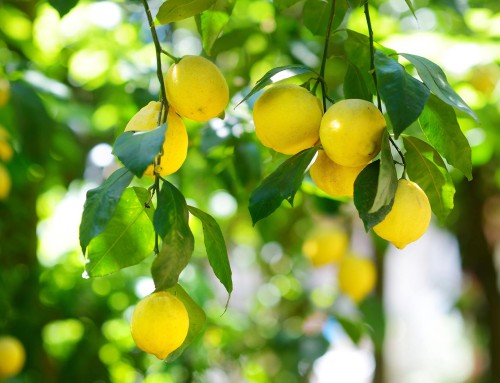What do you do to restore your energy and alertness levels? Do you dive for a chocolate bar? Do you drink a strong cup of coffee? Do you down a Red Bull?
These will give you the sugar or caffeine hit that will perk you up for the moment, but such quick fixes have consequences on your long-term health.
Low energy and fatigue are your body’s (and mind’s) distress signals. They demand that you should take a closer look at what you are doing – or neglecting to do – from day to day.
If you go along to a doctor with these symptoms, they would often recommend a battery of tests (blood, urine, stool) to try and rule out the usual suspects: thyroid problems, sleep disorders, anaemia, or anxiety. However, the real reason you’re feeling tired could be as simple as not having slept well for the last few nights, having worked too hard or neglecting your lunch.
The connection between Fatigue and Prana
Unlike conventional medicine, Ayurveda’s holistic approach takes in everything about you, including your body, mind, emotions, social life, daily routine and diet, as well as your spiritual life.
Sometimes fatigue can be purely physical, sometimes you can feel emotionally drained and at other times you can suffer from mental tiredness. According to Ayurveda, each type of fatigue represents a breakdown in the connection between your body, mind and consciousness.
This breakdown occurs due to the over-use, under-use or abuse of your emotions, mind, sensory organs or body. The result is imbalance and a toxic overload that blocks the flow of your Prana, or life-force. Fatigue, lethargy, loss of vitality or interest in life, poor digestion, aches and pains, depression and anxiety are all symptoms of blockages in the flow of Prana.
Understanding your Doshic nature
The best way to remedy the situation is to discover unhealthy patterns that are causing disharmony in your nature. One important key is to identify the Dosha that predominates in your body.
Doshas are the elements that underlie both mind and body and there are three of them:
- Vata governs movement, e.g. the movement of air within the lungs or movement of blood through the body
- Pitta governs transformations, e.g. the transformation of food into the cells of your body, or the transformation of information into creative ideas
- Kapha, which governs structure, e.g. the skeletal structure and muscles that hold your body together and gives us strength
Each Dosha has its own role in promoting your life and well-being and when they work together harmoniously, you experience good health. When they are out of balance, the result is poor health.
We all have a unique balance of the Doshas and tend to have predominance of one or two Doshas. Whichever Doshas, or Doshas, are predominant tend to be the ones that go out of balance more easily.
Catching imbalances early on
Knowing your unique Doshic balance, or body-type, can help you become aware of imbalances when they are in their early stages, or even avoid imbalances in the first place. When you understand your Doshas, it can make a big difference in how you approach life, nutrition, diet, and even exercise.
If you are high in Kapha, you might be encouraged to go out more and have a more varied lifestyle. If you are predominantly Vata you might need to stick closely to a regular routine to stay in balance.
When you know which behaviour is incompatible with your Doshas it can often explain why you get fatigued from time to time. For example, if you burn the midnight oil too often and don’t get sufficient sleep during the night, Vata is put out of balance. Energy levels are bound to plummet in the following days and you might even find yourself dosing off during mid-afternoon, when Vata is naturally high in the environment.
The solution to the problem of fatigue is found in one sentence from the Ayurvedic texts: “Proper use of the mind, body and emotions”.
Become aware of the signals from your own body. Get familiar with your own level of comfort and those stress-points where discomfort starts to appear.
Three Doshas and Three Fatigues
There is a relationship between the three Doshas and the three main types of fatigue:
- Mental fatigue is associated with an imbalance in Vata Dosha
- Emotional fatigue is caused by an imbalance in Pitta Dosha
- Physical fatigue is caused by an imbalance in Kapha Dosha.
1. For mental fatigue
- Go to bed early
- Avoid mental work before bed
- Have a regular daily routine, which includes a relaxed and substantial lunch
- Choose a Vata reducing diet
- Regular practice of Transcendental Meditation is recommended
- Take Peace of Mind Tablets twice daily.
2. For emotional fatigue
- Take time out to have pleasure
- Enjoying agreeable company is a great tonic
- Get some extra rest
- Take one Blissful Joy tablet twice a day.
3. For physical fatigue
- Maintain a light diet with some spices
- Exercise gently
- Get to bed by 10pm. Your body does its main replenishing between 10pm and 2am
- Take the Rasayana for Energy.
Four key steps to maximise mental and physical energy
To maximise your mental and physical energy, here are four steps you can take:
Transcendental Meditation:
This is simple and natural technique practised twice a day. It reconnects your body, mind and consciousness and gives you vitality and renewed energy.
Rest:
You should rest well at night, during meals and on the weekend.
- Be in bed by 10pm. This allows your mind and body to completely process, heal and rebalance. When we are in bed our body detoxifies and re–energises between 10pm and 2am. Then the mind does it major re-processing between 2am and 6am. Going to bed late will not give you as much benefit
- Sitting down for a relaxed meal allow your system to replenish, as the parasympathetic nervous system is allowed to do its work of balancing and digesting
- Taking one day a week off to relax and enjoy is a basic human right – allow yourself this pleasure.
Routine:
Keep to a good daily routine:
- Maintain a regular time to get to bed and to get up in the morning
- Aim for between 7 and 9 hours of sleep per night
- Eat food that suits your body type and eat at regular times
- Favour foods that are in season
- Take time to relax and have some refreshing daily exercise.
Digestion:
We produce energy from our food through the process of digestion and metabolism. For good energy it is essential that we take good care of this process.
- Eat only when you are truly hungry and be in a relaxed state when you eat
- Don’t over-eat at a meal – leave some space for digestion to take place
- Use spices like Vata Churna, Pitta Churna or Kapha Churna in the cooking to enhance the flavours and aid digestion
- Herbals tablets like either Herbal Digest or Digest Plus (one tablet with each meal) are very useful.
What if your energy is totally blocked and nothing seems to work
Sometimes all three type of fatigue are experienced at the same time and the main cause of this is Ama.
Low Agni (digestive fire), poor eating habits and overeating usually results in partially digested food accumulating in your digestive tract, which may then be pushed into your body tissues. The undigested food becomes a toxic sticky waste residue that Ayurveda calls Ama.
When your body is overloaded with Ama, all three types of fatigue are experienced and you feel mentally, emotionally and physically drained.
When this happens, you will have to eliminate the toxic build-up of Ama first before any other remedy will work.
To reduce accumulated Ama:
- Have just cooked apples or pears for breakfast and avoid sugar
- Have heavier proteins and largest quantity of food at lunchtime with light evening meals
- Be active and have a minimum of a 20-30 minute walk each day
- Ayurvedic fasting is an efficient way to burn away toxins
- Take Detox tablets to help systematically cleanse toxic residue so that the natural vitality of your life force can be restored.
- The very best way to clear Ama is through a series of internal cleanses, warm oil massages, supplements, and enemas. These treatments are called Panchakarma and are available from Maharishi Health Centre Skelmersdale: Tel +44 (0)1695 51008. Email mahc@maharishi.co.uk






